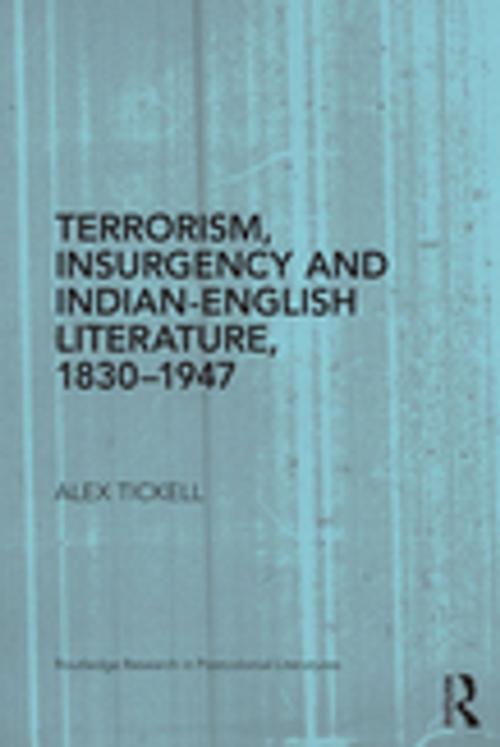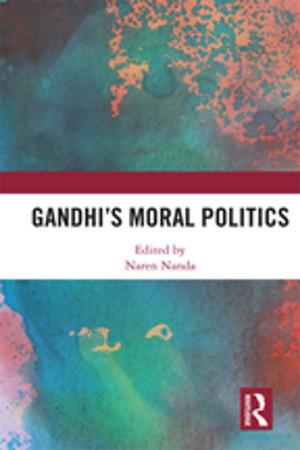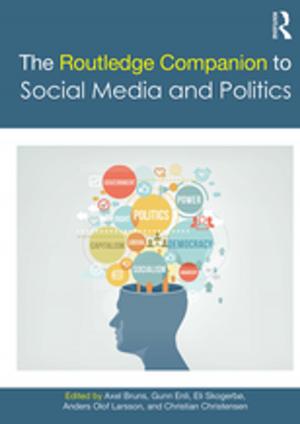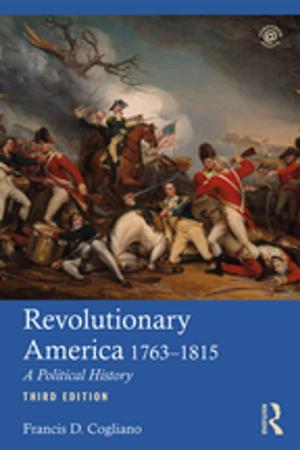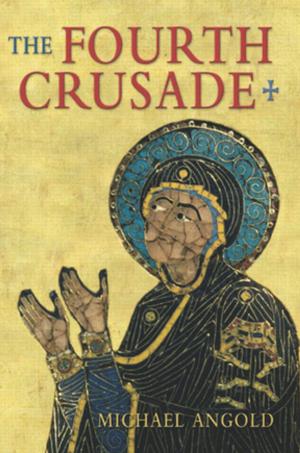Terrorism, Insurgency and Indian-English Literature, 1830-1947
Fiction & Literature, Literary Theory & Criticism, Asian, South & Southeast Asian, Nonfiction, History, India| Author: | Alex Tickell | ISBN: | 9781136618406 |
| Publisher: | Taylor and Francis | Publication: | June 17, 2013 |
| Imprint: | Routledge | Language: | English |
| Author: | Alex Tickell |
| ISBN: | 9781136618406 |
| Publisher: | Taylor and Francis |
| Publication: | June 17, 2013 |
| Imprint: | Routledge |
| Language: | English |
In this ground-breaking interdisciplinary study of terrorism, insurgency and the literature of colonial India, Alex Tickell re-envisages the political aesthetics of empire. Organized around key crisis moments in the history of British colonial rule such as the ‘Black Hole’ of Calcutta, the anti-thug campaigns of the 1830s, the 1857 Rebellion, anti-colonial terrorism in Edwardian London and the Amritsar massacre in 1919, this timely book reveals how the terrorizing threat of violence mutually defined discursive relations between colonizer and colonized.
Based on original research and drawing on theoretical work on sovereignty and the exception, this book examines Indian-English literary traditions in transaction and covers fiction and journalism by both colonial and Indian authors. It includes critical readings of several significant early Indian works for the first time: from neglected fictions such as Kylas Chunder Dutt’s story of anticolonial rebellion A Journal of Forty-Eight Hours of the Year 1945 (1835) and Sarath Kumar Ghosh’s nationalist epic The Prince of Destiny (1909) to dissident periodicals like Hurrish Chunder Mookerji’s Hindoo Patriot (1856–66) and Shyamaji Krishnavarma’s Indian Sociologist (1905–14). These are read alongside canonical works by metropolitan and ‘Anglo-Indian’ authors such as Philip Meadows Taylor’s Confessions of a Thug (1839), Rudyard Kipling’s short fictions, and novels by Edmund Candler and E. M. Forster. Reflecting on the wider cross-cultural politics of terror during the Indian independence struggle, Tickell also reappraises sacrificial violence in Indian revolutionary nationalism and locates Gandhi’s philosophy of ahimsa or non-violence as an inspired tactical response to the terror-effects of colonial rule.
In this ground-breaking interdisciplinary study of terrorism, insurgency and the literature of colonial India, Alex Tickell re-envisages the political aesthetics of empire. Organized around key crisis moments in the history of British colonial rule such as the ‘Black Hole’ of Calcutta, the anti-thug campaigns of the 1830s, the 1857 Rebellion, anti-colonial terrorism in Edwardian London and the Amritsar massacre in 1919, this timely book reveals how the terrorizing threat of violence mutually defined discursive relations between colonizer and colonized.
Based on original research and drawing on theoretical work on sovereignty and the exception, this book examines Indian-English literary traditions in transaction and covers fiction and journalism by both colonial and Indian authors. It includes critical readings of several significant early Indian works for the first time: from neglected fictions such as Kylas Chunder Dutt’s story of anticolonial rebellion A Journal of Forty-Eight Hours of the Year 1945 (1835) and Sarath Kumar Ghosh’s nationalist epic The Prince of Destiny (1909) to dissident periodicals like Hurrish Chunder Mookerji’s Hindoo Patriot (1856–66) and Shyamaji Krishnavarma’s Indian Sociologist (1905–14). These are read alongside canonical works by metropolitan and ‘Anglo-Indian’ authors such as Philip Meadows Taylor’s Confessions of a Thug (1839), Rudyard Kipling’s short fictions, and novels by Edmund Candler and E. M. Forster. Reflecting on the wider cross-cultural politics of terror during the Indian independence struggle, Tickell also reappraises sacrificial violence in Indian revolutionary nationalism and locates Gandhi’s philosophy of ahimsa or non-violence as an inspired tactical response to the terror-effects of colonial rule.
